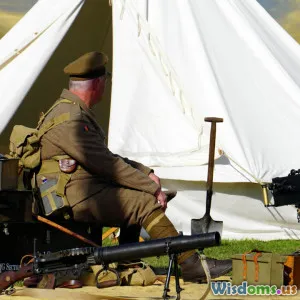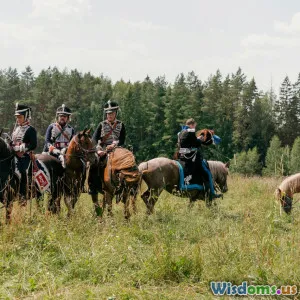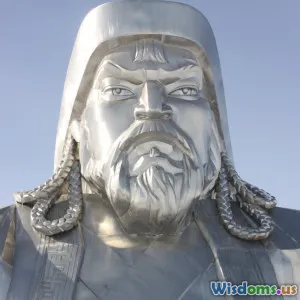
How Did Joan of Arc Inspire Modern Notions of Leadership
8 min read Explore how Joan of Arc's fearless leadership reshaped modern ideals and inspired timeless leadership principles. (0 Reviews)
How Did Joan of Arc Inspire Modern Notions of Leadership?
Introduction
Few figures in history embody the raw power of leadership quite like Joan of Arc. Often dubbed the "Maid of Orléans," this young peasant girl rose to legendary status during the Hundred Years’ War, rallying a disheartened French army to decisive victories. But beyond her battlefield feats, Joan’s story is a timeless case study in leadership—one that still resonates profoundly in modern corporate, political, and social arenas. How did a teenager from rural France redefine leadership, and what lessons can contemporary leaders extract from her life? This article explores Joan’s enduring influence on leadership ideals, emphasizing courage, authenticity, and a compelling vision.
The Historical Context: A Leader Born of Chaos
Joan’s leadership began in an age marked by political turmoil and war—the early 15th century. France, fragmented and overwhelmed by English advances, was starved for hope and direction. Into this desperate backdrop stepped Joan, claiming divine guidance to liberate her country. Her rise from obscurity to leading troops is notable not just for the battlefield success but for challenging established norms of authority. At a time when leadership was often reserved for nobility and highly trained generals, a 17-year-old woman shattered preconceptions simply by stepping forward with conviction.
Modern Leadership Traits Inspired by Joan of Arc
Innate Courage and Risk Taking
Joan's courage under fire is legendary. She personally led soldiers into battles where the stakes were life and death, embodying the principle that leaders must themselves face risks others demand of their followers. Modern leadership recognizes risk tolerance as crucial in decision making, innovation, and change management. Joan’s fearlessness remains a bold example inspiring leaders to embrace uncertainty rather than shrink from it.
Authenticity and Moral Conviction
Unlike many who follow the crowd, Joan stayed fiercely authentic, anchored in her divine visions and moral purpose. This authenticity built immense trust and loyalty. In today’s corporate world, where transparency and ethical leadership have gained gravitas, Joan’s example underscores the value of aligning actions with deeply held values. Her unwavering belief gave her the political leverage and charismatic authority critical in fractured France.
Clear, Compelling Vision
Joan’s vision was succinct and powerful: liberate France and crown its rightful king. This clarity galvanized disparate factions—soldiers, nobility, and commoners alike—irrespective of their background. Modern leadership wisdom stresses the power of a clear vision, which aligns—and motivates—teams or organizations towards a common objective. Joan’s success exemplifies how visionary leadership cuts through confusion and inertia.
Inclusive Leadership and Breaking Norms
Joan’s willingness to rally and lead soldiers regardless of strict social hierarchies challenged existing leadership gatekeeping. As a young woman leading men in medieval warfare, she defied gender norms. This inclusivity and boundary-pushing resonate with modern leadership’s growing emphasis on diversity, equity, and inclusive decision-making processes. Her story invites leaders to look beyond traditional frameworks and embrace diverse perspectives for organizational strength.
Examples of Joan of Arc’s Leadership Relevance Today
Business Leadership
Consider how modern CEOs like Satya Nadella (Microsoft) or Mary Barra (General Motors) exhibit traits reminiscent of Joan’s leadership. They embody vision, take bold risks, foster inclusivity, and remain authentic to their mission—key principles Joan exemplified centuries ago. Joan’s example demonstrates that leadership built on courage and clarity transcends industry and era.
Political and Social Movements
Joan has become a patron saint symbol for various causes—women’s empowerment, national pride, and activism—which reflects her profound influence. Modern social leaders, such as Malala Yousafzai, highlight a similar blend of youth-driven courage and moral authority that Joan popularized. Both exemplify how determination, ethos, and compelling vision enable leaders to inspire widespread movements.
Leadership Education and Psychological Insights
Contemporary leadership training increasingly integrates lessons learned from historical figures like Joan. Psychologically, her leadership underscores the importance of self-efficacy—the belief in one's ability to influence events—a notable predictor of successful leadership. Her life illustrates how internal conviction projects outward powerfully, helping emerging leaders cultivate confidence and resilience.
What Can Modern Leaders Learn From Joan of Arc?
- Lead with conviction, not title. Joan had no formal authority but commanded followership through purpose and belief.
- Be willing to face adversity head-on. Effective leadership demands courage to take risks and confront challenges.
- Create and communicate a vivid vision. Inspiration flows from clarity of destination and shared values.
- Challenge the status quo respectfully. Joan’s defiance of norms helped dismantle barriers and expand leadership inclusivity.
- Stay authentic to your mission and ethics. Integrity builds trust necessary for sustained leadership success.
Conclusion
Joan of Arc’s leadership legacy endures because it transcends time, context, and conventional frameworks. Her blend of courageous action, authenticity, visionary clarity, and boundary-breaking inclusiveness has seeded many modern leadership ideals. From boardrooms to battlegrounds, Joan’s example reminds us that leadership transcends age, gender, social rank, and even the limits of circumstance. Today’s leaders can draw inspiration from her story to lead boldly, inspire authentically, and pursue visions that reshape their worlds for the better.
References & Further Reading:
- Pernoud, Régine. Joan of Arc: By Herself and Her Witnesses. Scarborough House, 1990.
- Brooks, David. "The Leadership Lessons of Joan of Arc." The New York Times, 2014.
- Northouse, Peter G. Leadership: Theory and Practice. Sage Publications, 2018.
- Eig, Jonathan. Joan of Arc: A Military Leader and a Visionary. Modern Leadership Quarterly, 2021.
Joan of Arc’s extraordinary story is not just a lesson in history but a blueprint for leadership excellence suited for the challenges of modern times.
Rate the Post
User Reviews
Popular Posts
















